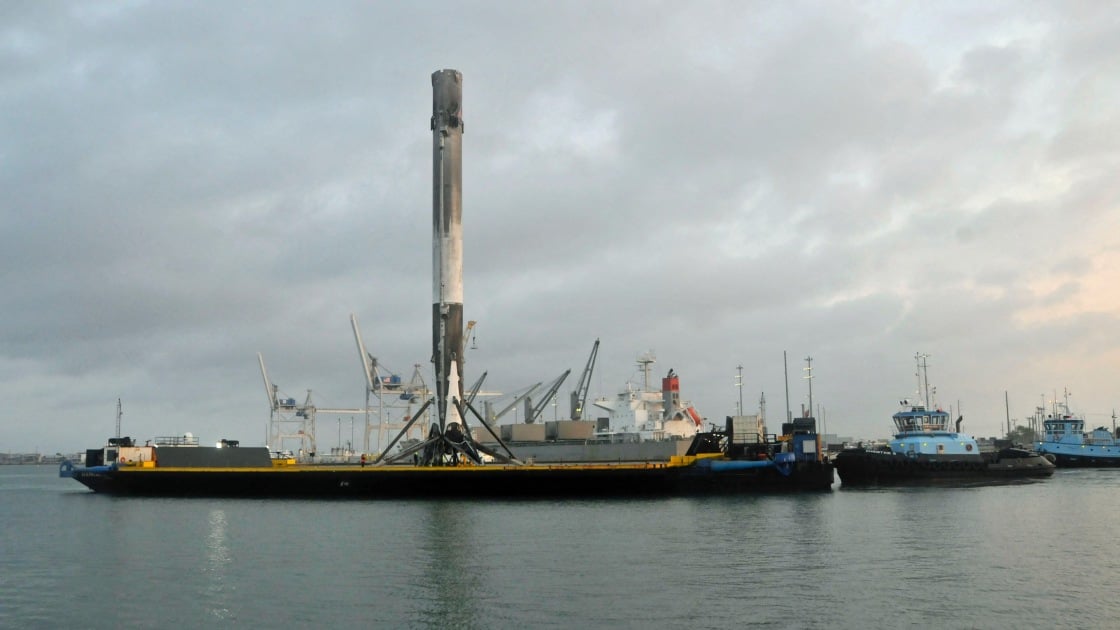
SpaceX’s drone ships have been designed to act as landing pads for rockets. But now the company is exploring using ships as “gateway” stations to bolster Starlink’s coverage at sea. Last month, the company applied for a temporary FCC license to test operating up to 12 “earth station” antennas over the drone ships. Although Starlink isn’t directly named, the application noted all 12 antennas will communicate with SpaceX’s satellite network. On Tuesday, a company lawyer then shed a little more light on the experiment, and indicated it’s tied to the Starlink Maritime service. “The purpose of the test is to assess the earth stations’ ability to serve as gateways in a maritime environment using test traffic,” the SpaceX lawyer told the FCC in an email, which was first spotted by a Twitter user.
(Credit: Elon Musk)
The antennas on the drone ships will connect to both first-generation and second-generation Starlink satellites. “During the test period, the earth station will only receive and transmit test traffic to assess the capability of these earth stations to route and switch NGSO FSS (non-geostationary satellite orbit, fixed-satellite service) traffic and backhaul local networks in a maritime environment,” SpaceX’s lawyer added. Currently, Starlink satellites beam the internet to users by pulling data from ground stations connected to fiber networks on Earth. If a ground station isn’t within view, then a satellite can rely on its laser system to transmit data with other satellites, forming a mesh network in space.
Recommended by Our Editors
While the laser system has proven to be robust, delivering over 42 million gigabytes per day, it looks like SpaceX is exploring bolstering Starlink’s coverage at sea by tapping its drone ships. However, the company’s lawyer didn’t provide any more details in the email, including how the drone ships could serve as backhaul without a dedicated fiber connection. Introduced in 2022, Starlink Maritime, is already serving over 10,000 vessels, according to SpaceX’s progress report for the satellite internet system. To conduct the test, the company will need to secure final approval from the FCC, which is still weighing the application.
Get Our Best Stories!
Sign up for What’s New Now to get our top stories delivered to your inbox every morning.
This newsletter may contain advertising, deals, or affiliate links. Subscribing to a newsletter indicates your consent to our Terms of Use and Privacy Policy. You may unsubscribe from the newsletters at any time.






